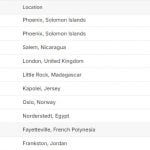DIY SEO: The Complete List of Google Ranking Factors for 2016-2017
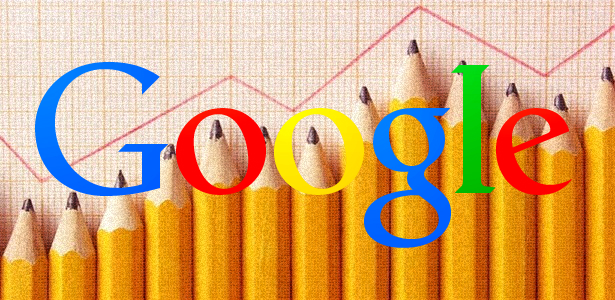
Google’s algorithm consists of more than 200 ranking factors. While some of them are quite obvious and others are a little bit controversial, the best SEO companies rely on the most of them trying to improve Google rankings of their clients. To keep up with the best SEO specialists, I propose you to examine what is important for the search engine’s algorithm: all Google page ranking factors are listed below. They are divided into several groups, such as domain, page, website, etc.

Table of contents
- 1 Google Ranking Factors: Domain
- 2 Google Ranking Factors: Page
- 3 Google Ranking Factors: Website
- 4 Google Ranking Factors: Backlinks
- 5 Google Ranking Factors: User Interaction
- 6 Google Ranking Factors: Special Rules
- 7 Google Ranking Factors: Social Signals
- 8 Google Ranking Factors: Brand Signals
- 9 Google Ranking Factors: On-Site Spam
- 10 Google Ranking Factors: Off Page Spam
Google Ranking Factors: Domain
1. The first factor is Domain Age. Luckily, it is not very important, but it is utilized along with others.
2. Keywords in the top level domain also help to increase Google ranking, but this factor doesn’t influence your website position a lot.
3. Keyword as the first word in your domain affects ranking as well.
4. Domain registration length is also important to some extend, since the domain expiration date can be used for predicting the domain legitimacy.
5. Keyword in your subdomain name is also among Google ranking factors.
6. The history of your domain is important as well.
7. The importance of Exact Match Domains is controversial, but I this factor in the post.
8. Private WhoIs can also provide a negative impact on a Google rank. Therefore, SEO companies recommend to turn it off.
9. Penalized owner: Google can easily penalize all your sites if you send spam from only one of them.
10. Country TLD extension, such as .ca, .ua, or .gb, improves ranking for the particular country, but limits it in case of global results.

Google Ranking Factors: Page
1. One of the most influental page-level SEO factors is a keyword in the title tag, since it is the second important piece of content on a webpage.
2. And it is better to start your title tags with keywords.
3. Another relevancy signal is a keyword in the description tag.
4. The same is about H1 tags.
5. You should also note that a keyword is a phrase that appears on a page the most frequently.
6. Long articles are likely preferred to shorter ones.
7. Keyword density is not as important as it once was, but it is still used. Please note that going overboard provides a negative influence on Google ranking.
8. LSI Keywords are also among important SEO factors, since they help search engines understand the meaning of polysemantic words. You can use them in content, as well as title and description tags.
9. Page load speed is another Google ranking factor. It depends on various aspects, including a page’s code and filesize. Google may also use user data from Chrome to identify the speed of your pages.
10. Identical content within one website provides a negative impact on rankings. Therefore, use rel=canonical tags properly to prevent Google from considering similar pages duplicate content.
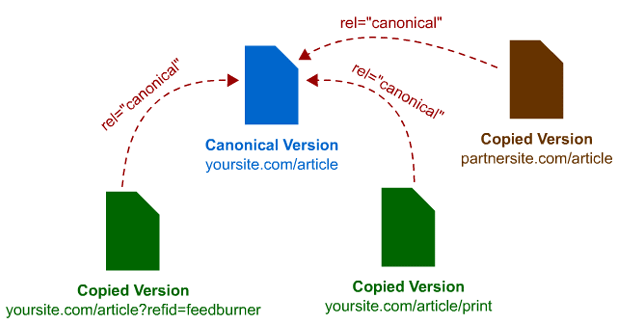
11. Since images provides search engines with data through file name, title, alt text, caption, and description. You can use these fields properly to increase Google ranking.
12. Don’t forget to update content of your pages as it is also a strong improvement to your rankings.
13. Put a keyword in the first 100-words of a page, since it is a relevancy signal.
14. Keywords in H2 and H3 tags insignificantly increase Google ranking.
15. Word order within a keyword is also important. A page optimized for a certain phrase will rank better than a page optimized for the similar one but with slightly different word order.
16. Many SEO specialists state that the outbound link quality also matters. Thus, linking out to authority websites help to improve Google ranking. Moreover, the content of these websites should be relevant to the content of your page or website. Note that dofollow links may hurt page’s rankings.
17. Someone says that even grammar and spelling are among Google ranking signals.
18. And don’t forget that original content means everything in search engine optimisation.
19. Helpful supplementary content is another important Google ranking indicator.
20. Multimedia content is among strong Google ranking signals.

21. Another ranking factor is the number of internal links to a page. It also illustrates the importance of the page within a website. The quality of these links is important as well.
22. Beware of broken links, as they decrease the quality of a website and may be a sign of an abandoned site.
23. Also note that Google estimates a reading level: basic, intermediate, or advanced.
24. If there are too many affiliate links on a website, Google may pay closer attention to it.
25. Sloppy HTML and various errors are a sign of a poor quality website. That’s why you should pass WC3 validation, but is still a weak signal.
26. The domain authority of a page host is another Google ranking factor.
27. The same is about PageRank.
28. URL length may also hurt search visibility, in case of excessively long URLs, of course.
29. According to some SEO specialists, Google ranking factors include a URL path. A page can get a slight boost in ranking if it is situated closer to the homepage.
30. Page category is another relevancy signal. Being a part of a closely related category, a page will get a relevancy boost.
31. The proper use of WordPress tags increase Google ranking as well.
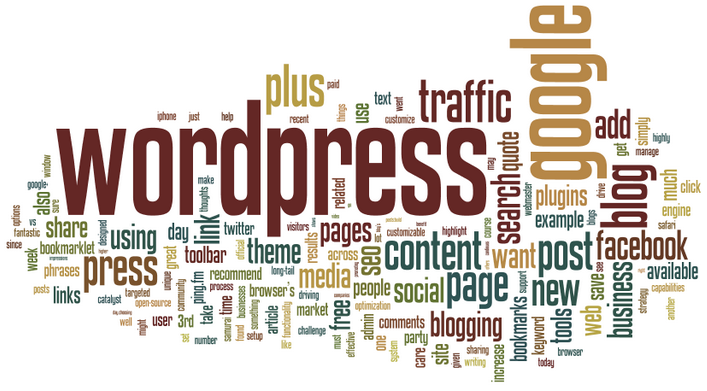
32. A keyword in URL is also an important relevancy signal.
33. Categories in URL may also provide a positive impact on SEO, since they help Google understand what a page is about.
34. Citing references and sources, you can also improve your Google search rankings.
35. Since numbered lists and bullets make your content more user friendly, Google ranks it higher.
36. The sitemap.xml is a tool that provides influence on ranking.
37. Several keywords per page is another sign of quality.
38. Older regularly updated pages may outperform newer ones.
39. User friendly interface and layout of a page influence Google ranking positively.
40. decrease search visibility.
41. The usefulness of content is another vital Google ranking factor. Remember that your content should not only be of high quality, but it should be considered as useful as well.
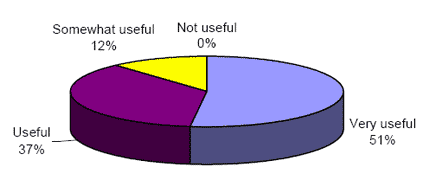
Google Ranking Factors: Website
1. Google prefers websites with an appropriate amount of contact information. Moreover, it should be similar to your whois info.
2.TrustRank (the number of links from highly-trusted websites) is a strong ranking factor.
3. User friendly site architecture is also a plus.
4. Site updates are vital!
5. The number of pages is also a sign of authority, but a weak one.
6. Did you know that downtime may hurt your ranking?
7. Even the location of your server may, since it influences your site ranks in geo-specific searches.
8. Note that SSL certificates and HTTPS are Google ranking signals as well.

9. It is also worth mentioning that both terms of service and privacy pages identify a website as a trustworthy one.
10. Meta information duplicated within a website is a negative factor, so try to use only unique descriptions.
11. Another huge ranking factor is mobile optimization. If a site is mobile friendly, it gets an edge in mobile searches; if it is not – Google penalize it.
12. It is also important to know that videos from YouTube get a preferential treatment in SERPs.
13. If a website is difficult to navigate and use, visitors leave it faster reducing bounce rate. As a result, poor user experience leads to decreased Google rankings.
14. Some SEO specialists insist that Google Analytics and Google Webmaster Tools can also increase site indexing.
15. User reviews on review sites, as well as a website’s reputation play an important role in the algorithm.
Google Ranking Factors: Backlinks
1. Linking domain age matters, since backlinks from old domains are more powerful than ones from newer domains.
2. The number of linking root domains, links from separate C-Class IPs, and linking pages are among key Google linking factors related to Backlinks.
3. Some SEO experts say that links from .gov and .edu domains are better than others.
4. The authority of linking pages and domains also matters.
5. As well as links from competitors.
6. Another important factor is the amount of social shares related to a referring page.
7. At the same time, links from unreliable sources may hurt your site.
8. Links from guest posts are not so valuable as others.
9. Having a certain number of nofollow links is also important.

10. Diversity of link types (links from various forums, blogs, and social networks) is a sign of a natural link profile, which is a plus.
11. “Sponsored link”, “link partner,” or their synonyms used with a link may decrease its value.
12. Contextual links (ones embedded into a page’s content) has more powerful than links found elsewhere on a website.
13. If you have more than two 301 redirects from one page to another, you may dilute all PR.
14. Anchor text sends a small relevancy signal to Google.
15. Link title attribution is another google ranking factor, related to backlinks.
16. Links from country-specific TLDs provide better rankings in that countries.
17. Location in content also matters, since links from the beginning of the text weight more than ones from its end.
18. As well as location on a page: links from a page’s content are more powerful than ones from footer or sidebar areas.
19. The relevancy of both a linking domain and a linking page has a great role in Google rankings. The domain and the page should be from a similar with your content niche.
20. Related to a backlink text should not only be of high quality but have a positive meaning as well. If it is a negative review, you won’t increase Google ranking with such link.
21. Links from pages with your keywords in a title are more valuable.
22. Positive link velocity shows that your website is a reliable source of content, so it gets a SERP boost. At the same time, negative velocity shows that a website looses its popularity.
23. Links from hub pages and authority websites pass more juice.
24. Some SEO companies consider links from Wikipedia a sign of trust for all major search engines.

25. Older links are more reliable, so they have better influence on Google ranking newly ones.
26. Links from real websites are more valuable than links from fake resources.
27. Excessive link exchanging is a negative ranking factor.
28. Pages with microformats may get higher Google ranking than pages without this feature.
29. There is an opinion that DMOZ listed websites get extra trust from Google.
30. TrustRank of the site linking to you is also utilized in Google’s ranking algorithm.
31. The same is about the number of outbound links on a page referring to your website. The less is this number, the more PR your page gets.
32. Please note that links from forum profiles plays less important role in Google ranking (because of spam).
33. Word count and quality of linking content are widely used in Google search ranking.
34. Google considers sitewide links as a single backlink.
Google Ranking Factors: User Interaction
1. Bounce rate is one of key Google ranking factors related to user interaction with a website.
2. Organic CTRs (click through rate) for a particular keyword for a certain page lead to a SERP boost for that particular keyword and page.
3. Direct traffic is another important ranking factor, so websites with lots of direct traffic are ranked higher than ones with smaller amount of visitors.
4. Repeat traffic leads to a boost in Google rankings.
5. The Blocked Sites feature is used as a quality signal.
6. Some SEO experts say that pages bookmarked in Chrome get a boost in ranking.
7. The number of comments matters, since a signal of quality to some extend.
8. Dwell time is also among vital Google search ranking factors. If people stay on a website for a long time, that shows the quality of content, thus, the website gets higher ranking.

Google Ranking Factors: Special Rules
1. Newer pages get a boost in Google ranking in case of certain searches.
2. Browsing history can also increase a website’s place among search results. If signed to Google, users provide a SERP bump for websites they frequently visit.
3. As mentioned above, websites with local server IPs and country-specific domains get preferences in case of a local search.
4. Websites with curse words or adult content are excluded from search results for people using Safe Search.
5. Pages with DMCA complaints are ranked down.
6. Note that Google+ Local results can be placed above other organic SERPs.
7. Big brands get a boost in Google search ranking for certain short-tail searches.
8. Brand-related keywords can bring several pages of the same site simultaneously.
9. Some organic SERPs include Google Shopping results above others.
10. The same is about image results.
Google Ranking Factors: Social Signals
1. The number of tweets matters.
2. As well as the authority of Twitter accounts.

3. Some SEO specialists say that even the number of Facebook likes is utilised in Google search ranking. In their turn,
4. In their turn, Facebook shares are more important.
5. The authority of Facebook accounts is important as well.
6. Pinterest pins can be also considered as a social signal.
7. Google probably uses data from Reddit, Digg, and Stumbleupon in its algorithms.
8. The same is about Google+ 1’s, despite some experts insist that Google+ provides no direct effect on rankings.
9. Google probably check the relevancy of information, which surrounds a link in a social network.
10. Social signals aimed at a whole website may increase its overall authority.
Google Ranking Factors: Brand Signals
1. One of key brand signals is a branded anchor text. It is a simple and at the same time reliable solution.
2. A Facebook page with lots of likes is good for your brand.
3. The same is about a Twitter profile and a Linkedin page with a detailed information about your brand.
4. The social media legitimacy is another important Google ranking factor related to brand signals. An account with several thousands followers and only few posts looks suspicious, isn’t it?
5. Probably, non-hyperlinked brand mentions are considered as brand signals.
6. According to some experts, the number of RSS subscribers is also a popularity signal used in the algorithm.

7. Chances are, Google even relies on Local Listing for some cases.
8. As well as on tax payments.
Google Ranking Factors: On-Site Spam
1. Low-quality content websites get a Panda penalty and become less visible in search.
2. Links to unreliable websites are also harmful for your Google rankings.
3. The same is about popups or distracting ads.
4. In its turn Cloaking leads to de-indexed.
5. Also, be careful with site and page over-optimization.

6. Too many ads above the fold provides negative impact on Google ranking.
7. And don’t go too far hiding affiliate links since that leads to a penalty.
8. Autogenerated content can be harmful as well.
9. PageRank sculpting is another factor that can decrease your position among other search results.
10. If a server’s IP is flagged as spam, all websites on that server can be affected.
11. Beware of meta tag spamming: adding to much keywords to your meta tags is not a good idea, as instead of increasing Google search rankings, you can be penalized.
Google Ranking Factors: Off Page Spam
1. A sudden influx of links is penalized, since it is a sign of fraud.
2. The same is about high amount of low quality links or links from unrelated websites in a link profile.
3. Be careful with links from sites on the same server IP, as they may be considered as a sign of blog network link building.
4. Poisonous anchor texts also negatively impact Google ranking.
5. As well as selling links or creating temporary link schemes.
6. Please note that a reconsideration request can be a reason for lifting a penalty.
If you know other important Google ranking factors, please let us know in comments.



